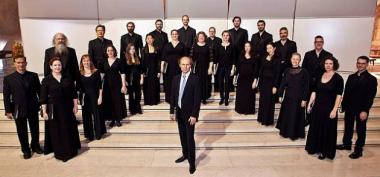- Cappella SF's 'Russian Voices to Stir the Air'
- Multitalented, Iconic David Bowie Dies
- German Film Festival Offers Berlin Symphony, Tango
- Music to Aid Refugees
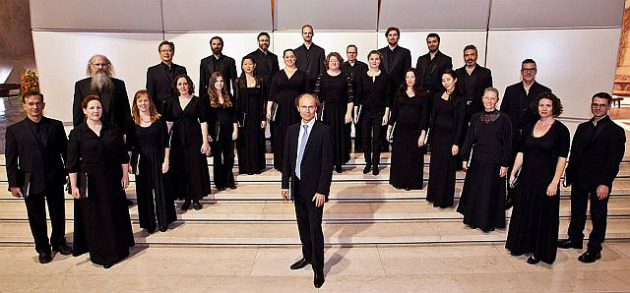
Cappella SF's 'Russian Voices to Stir the Air'
San Francisco Symphony Chorus Director Ragnar Bohlin and his offbeat, pioneering Cappella SF are embarking on yet another presentation of the "rare and unusual" — their Jan. 17 concert in Mission Dolores Basilica is called "Russian Masterpieces: Voices Stir the Air"... but don't expect Tchaikovsky and sugar plums. Working with the Consulate of the Russian Federation and some specialists, Bohlin is delving into his own long experience with the music of the country close to his native Sweden. He explains:
This program was designed to demonstrate the vast riches of Russia's choral literature to our growing audience. The music spans more than three centuries, from Dmitri Bortnyansky, the 18th-century Orthodox kappelmeister to the Russian czars, to Catholic-inspired works by the late contemporary polystylist, Alfred Schnittke. We close the program with a large segment of Sergei Rachmaninoff’s spectacular All-Night Vigil. With the superb voices of Cappella SF as the vehicle for these treasures, audiences will experience an evening of profound beauty.
Wherever you may hail from, even if from Russia, how many of these works on the program do you know?
• Dmitry Bortnyansky, Cherubic Hymn No. 7
• Pavel Chesnokov, "Salvation is created"
• Alexander Gretjaninov, "Our Father"
• Sergei Viluman, "Notj, Ulitsa, Fonar, Apteka"
• Alfred Schnittke, excerpts from Psalms of Repentance
• Sergei Rachmaninoff, Nos. 1-8 from All-Night Vigil (also known, inaccurately, as Vespers)
The last two should be more familiar than the others, but I wonder how many listeners know the mesmerizing, spooky, glacially moving Schnittke. Turning to Bohlin results in some additional information:
I have known the Rachmaninoff and Schnittke very well. The Sergei Viluman song is the first piece I conducted and recorded with the Swedish Radio Choir, back in 1996. By the way, that composer has changed his name; his previous name was Sergei Dmitriev.
I did get some advice from a Swedish colleague (which will result in a secret encore) and I also consulted Marika Kuzma about selecting the Bortnyansky piece. [Kuzma, emeritus faculty member of UC Berkeley Music Department, is an expert in Slavic choral music.]
The chamber choir participated in an acclaimed environmental collaboration with Food & Water Watch in November and released its debut recording on the Delos label. Light Of Gold: Cappella SF Christmas was featured on iTunes’ "Holiday Music" front page and praised in the December issue of Gramophone magazine.
Multitalented, Iconic David Bowie Dies
Look up here, I’m in heaven
I’ve got scars that can’t be seen
I’ve got drama, can’t be stolen
Everybody knows me now
The text is from "Lazarus," a song from David Bowie's last record, Blackstar, published three days before he died on Sunday, at age 69. The cause of death was cancer, which he had concealed for the past 18 months while continuing to work. Bowie, who made his mark as a composer, performer, actor, multi-instrumentalist, record producer, arranger, and painter, also had a connection with classical music.
An aficionado of classical works, Bowie's 1978 recording of Prokofiev's Peter and the Wolf, with Eugene Ormandy and the Philadelphia Orchestra, "crossed over" to near the top of the pop charts.
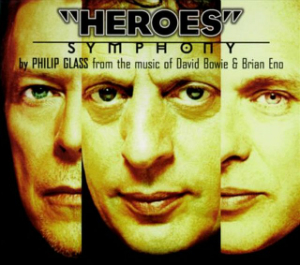
Bowie also inspired two of Philip Glass' symphonies, No. 1 referring to Bowie's Low album, and No. 4 sharing the title (and sound) of Bowie's Heroes.
His recording of Space Oddity, with the London Symphony Orchestra was also acclaimed by both classical and pop audiences.
From Tara Bahrampour's obituary in the Washington Post:
With his sylphlike body, chalk-white skin, jagged teeth and eyes that appeared to be two different colors, Mr. Bowie combined sexual energy with fluid dance moves and a theatrical charisma that mesmerized male and female admirers alike.
Citing influences from Elvis Presley to Andy Warhol — not to mention the singer Edith Piaf and writers William S. Burroughs and Jean Genet — Mr. Bowie was trained in mime and fine arts, and played saxophone, guitar, harmonica, and piano. A scavenger of musical and visual styles, he repackaged them in striking new formats that were all his own, in turn lending his dramatic, gender-bending aesthetic to later performers such as Prince and Lady Gaga.
German Film Festival Offers Berlin Symphony, Tango
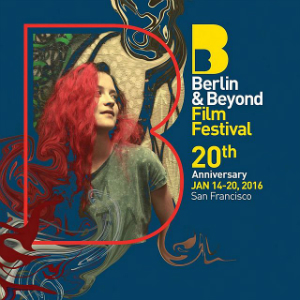
For its 20th year of presenting German-language films in San Francisco, "Berlin & Beyond" includes a trio of prominent musical films: the 1937 Berlin: Symphony of a Great City, with live accompaniment by German electronic/acoustic band ALP; Our Last Tango; and Dodo Hunziker’s Tibetan Warrior, which illuminates the plight of modern Tibet through the pilgrimage made by its exiled narrator, musician Loten Namling.
Two dozen films from Germany, Austria, Switzerland, and some international co-productions will be screened in the Castro Theater, Jan. 14-20, including the North American premiere of a spy drama, After Spring Comes Fall and the U.S. premiere of Martin Hawie’s Toro.
Among personal appearances will be that of Anke Engelke, the voice of Marge Simpson in the German version of The Simpsons, introducting her new comedy Ms. Müller Must Go.
Walther Ruttman’s classic, Berlin, Symphony of a Great City will close the festival on Sunday evening, in a rare screening with live accompaniment. The German-Argentine Our Last Tango chronicles the lifelong love affair between two of the most famous dancers in tango’s history.
María Nieves Rego (80) and Juan Carlos Copes (83) met when they were 14 and 17, and they danced together for nearly 50 years. In all those years they loved and hated each other — reflecting tango's simultaneous and conflicting underpinnings — and went through several painful separations. But the two always reconnected — with one notable hiatus when he married a younger woman and fathered two children.
Now, at the end of their lives, Juan and María are willing to open up about their history and feelings, telling their story to a group of idolizing young tango dancers and choreographers from Buenos Aires, who transform the moments of Juan and María’s lives into tango performances.
Music to Aid Refugees
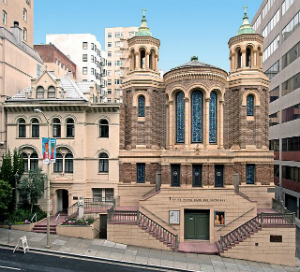
"The music spans genres," writes Camellia Rodriguez-SackByrne, "from classical to world music, all the musicians are volunteering their time and talents, and the concert has an interfaith element: musicians from both the Catholic Church hosting the concert (Notre Dame des Victoires) and a Jewish cantor from Israel."
This special event continues musicians' efforts to aid Syrian and other refugees. The concert is scheduled for 7 p.m. Jan. 13; email contact is [email protected]. Donations may be made in person or online.
Performers are musicians from Notre Dame des Victoires Church, including Rodriguez-SackByrne (flute) and Rob Grant (guitar); Diana Gameros (singer-songwriter); Yuri Kye (violin) and Jon Lee (piano) of the Alden Trio, with Ed Baskerville (cello); members of the Chamber Music Society of San Francisco: Clio Tilton (viola, violin) and Natasha Makhijani (violin); Jennifer Lee (piano) and Sarah Lee (viola) of the Verismo Duo; and Achi Ben Shalom, community choral director and synagogue cantor.
The venue, says Rodriguez-SackByrne, is "so relevant — Notre Dame des Victoires is a San Francisco historic site that served the French immigrant community many years ago, and still holds a Mass in French."
Elsewhere there have been many, similar efforts to help refugees, including in London (where members of the city's orchestras played together at a benefit at St James's Church), and Boston.
The Minnesota Orchestra followed a Beethoven marathon of all nine symphonies and five piano concertos in 18 days with a benefit concert for refugees on Jan. 3, conducted by Music Director Osmo Vänskä. Principal cellist Tony Ross and his wife, Beth Rapier, who also plays cello with the orchestra, spearheaded the project to aid relief efforts for the estimated 6 million refugees, who have been displaced by the civil war in Syria. Ross quoted Leonard Bernstein, who said after President Kennedy was assassinated in 1963: "This will be our reply to violence. To make music more intensely, more beautifully and more devotedly than ever before."

